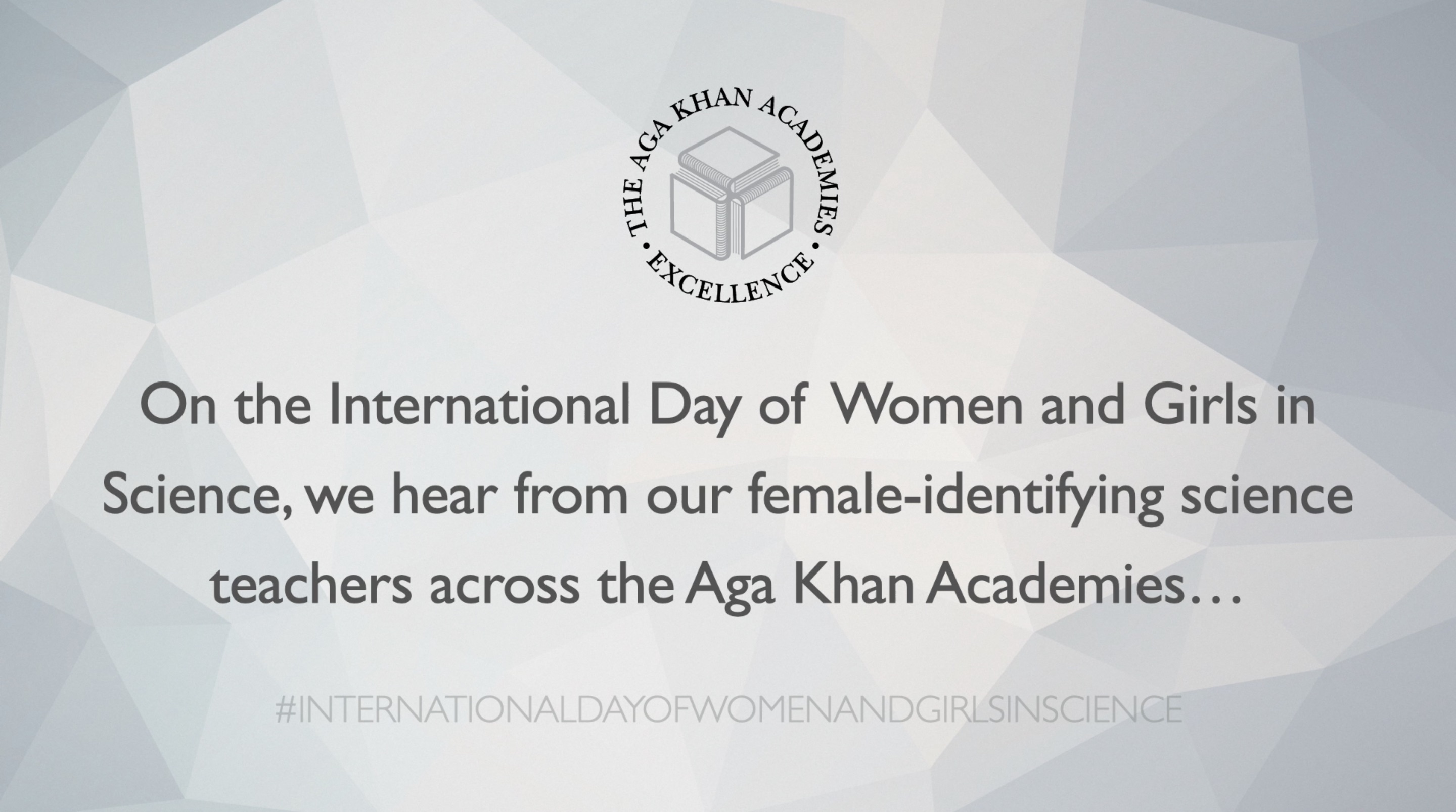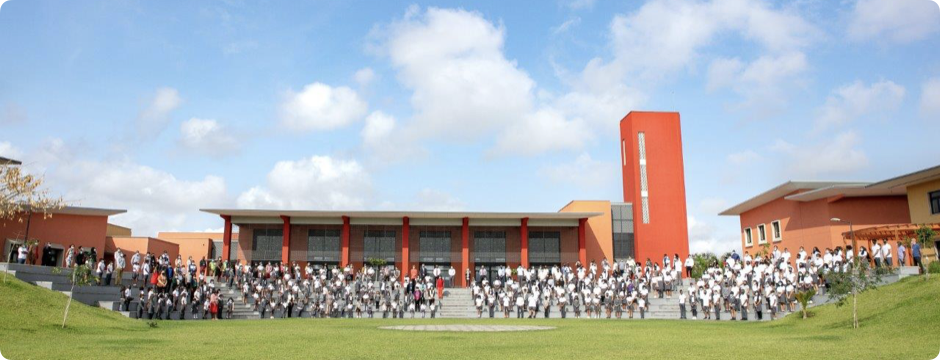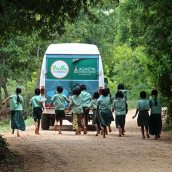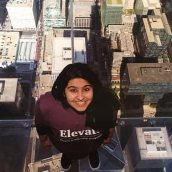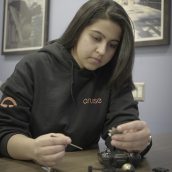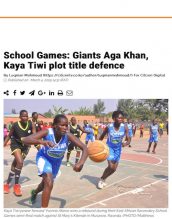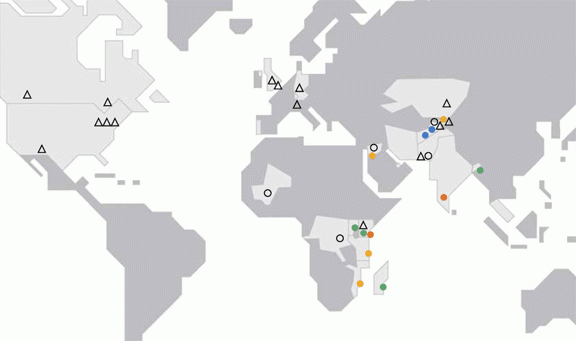
The Academies Network
The Aga Khan Academy Hyderabad is the second in a network of Aga Khan Academies being established in countries across Africa, South and Central Asia, and the Middle East. The first Academy opened in Mombasa, Kenya in 2003 and the third in Maputo, Mozambique in 2013.
The aim of the Academies is to develop future leaders with the skills and knowledge to support positive development in their societies. We achieve this by recruiting exceptional young people from all backgrounds and providing them with the highest international standard of education.
Admission is competitive and based on student merit, regardless of a family’s ability to pay. Each Academy endeavours to meet the demonstrated financial need of each admitted student.
When complete, the network of Academies will form a global learning community of approximately 18 schools in 14 countries (map). They will eventually serve approximately 14,000 girls and boys of exceptional calibre, graduating 1,500 students annually.
For more information, visit our Academies network home page.

The Academies Network
The Aga Khan Academy Mombasa is the first of a planned network of Aga Khan Academies being established in countries across Africa, South and Central Asia, and the Middle East.
The aim of the Academies is to develop future leaders with the skills and knowledge to support positive development in their societies. We achieve this by recruiting exceptional young people from all backgrounds and providing them with the highest international standard of education.
Admission is means-blind and based on merit to ensure access for eligible students regardless of financial circumstances.
When complete, the network of Academies will form a global learning community of approximately 18 schools in 14 countries (map). They will eventually serve approximately 14,000 girls and boys of exceptional calibre, graduating 1,500 students annually.
For more information, visit our Academies network home page.
Students pitch environmental projects at Shark Tank competition for AKA Climate and Environment Conference
Alisha Sonawalla - pushing the frontiers of technology
Alisha Sonawalla was part of the Aga Khan Academy Hyderabad’s first graduating batch, the Class of 2014. Since then, she has accumulated an extraordinary set of experiences during a gap year and subsequently at university in New York City before joining Microsoft in Seattle, USA this summer (2019). These experiences range from heading projects geared at exposing girls in rural India to coding and internet technologies to designing English language development programmes in Tajikistan, and most recently, to spending summers in Silicon Valley working on self-driving cars.
Alisha is currently working as a software engineer at Microsoft after pursuing a dual degree – a Bachelor of Science in computer science and a Bachelor of Science in management science with a concentration in data science (both from New York University (NYU)). She has received the Dean’s Honour Roll for securing a grade point average in the top 10% of the class. Outside the classroom, she has dabbled in multiple projects including building her own robot news-reader and experimenting with developing a secure cloud-sharing service.“The Academy helped me become comfortable with making mistakes and encouraged me to focus on identifying solutions instead,” Alisha said. “That, and my gap year experiences ignited in me a passion for tech and an entrepreneurial spirit, and ever since, I have been excited about building products to push the frontiers of technology forward.”
“It was an exciting time to be in the mecca of tech,” she reminisces. “I led the development of a large-scale mapping service to deliver real-time, preemptive updates to the vehicle, allowing them to make more efficient routing decisions and enhanced ride safety. As one of the early engineers in the self-driving car space, it was amazing to have the opportunity to contribute towards the future of tech.”
“The girls’ newfound confidence became my motivation as I travelled across India and to Tajikistan conducting sessions for women on STEM opportunities,” shares Alisha.
She was also one of 25 female engineers globally who was awarded the "Goldman Sachs Grace Hopper Conference Scholarship" to attend the Grace Hopper Conference, the largest conference for women in tech.
In 2013, while still at the Academy, Alisha travelled across four remote villages of Gujarat to document the livelihood and survival strategies of a lost community, the Devipujaks. Her interviews and field research were compiled into one of the only ethnographic studies done on this marginalised group of people, and she presented her findings at the National Conference on Human Rights organised by the Central University of Gujarat and the Government of India.
In the meantime, Alisha is joining Microsoft as a software engineer on their AI & Mixed Reality team.
“The Academy gave me the space to develop my moral compass by taking on leadership opportunities and experiencing ethical dilemmas first-hand. Being faced with these ethical decisions on a small scale helped me develop a moral compass that guides me through major decisions even today. Moreover, living in a shared space taught me to adapt to different situations, lifestyles and people, which made my transition to NYU, a new city and a different culture seamless.”
Written by Kamini Menon
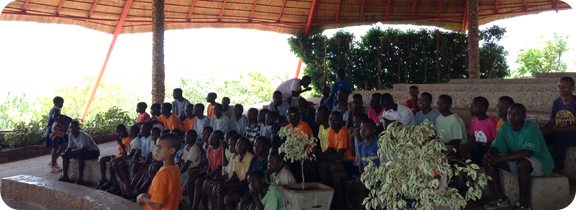
Community Links
The vision set out by His Highness the Aga Khan is for each Academy to become an integral part of the greater community in which it resides. This value applies not only to the students but also to the teachers at each of the Academies.
This focus comes into play at the admissions stage where potential students are chosen not only for their thirst for knowledge and intellectual merit, but also for having a high level of social awareness. This includes the desire to work towards, and instigate, positive change and the potential for leadership in community service.
Community service plays a large part in each of the levels of education offered at the Academies, which in turn allows for graduates that are civic minded. In choosing the sites for each school, special attention is paid to not only what the area can offer the students but also what the Academy can offer the community.
While supporting students in developing an understanding of global issues, the Academies’ educational programmes also reflect great sensitivity to local languages, history, cultures and environment. Each school is committed to inspiring and empowering students to use their gifts for the betterment of humanity.
Creativity, activity, service
In choosing the International Baccalaureate programme, the Aga Khan Academies chose to incorporate the creativity, activity, service (CAS) component.
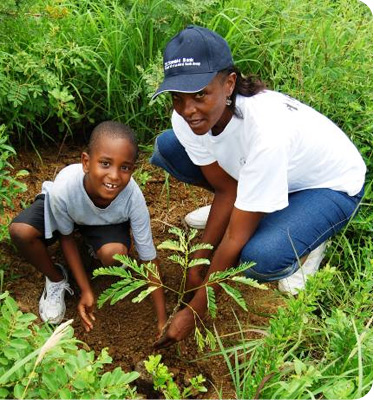
This integral programme is designed to create global citizens through active participation in and reflection upon experiences gained through a variety of creative endeavours, physical activities and community service projects.
Students develop a greater level of self-confidence, teamwork and leadership skills, and a sense of civic responsibility.They take part in sustainable projects that have real and lasting effects on the greater community. And they develop strength of character and an understanding of their ability to bring about change.
The CAS programme is valued for its power to transform not only the lives of students but also those with whom the students interact.
It also serves as a platform for interpersonal exchange, personal growth and greater understanding of the issues we face as a global community.
For more information of our CAS projects in action, visit our school websites.
Professional development outreach
Emphasis on community outreach and service is extended to the staff at each Academy as well, especially the teaching staff.
Each school will incorporate a Professional Development Centre (PDC), which will promote excellence in teaching on campus and strengthen the profession of teaching in the region as well.
"At the Academy, I feel part of a community. I am active in service projects that are making a real and lasting difference to people. I had no idea how important this would become for me."The Academy’s PDC supports excellence in teaching by promoting best practices in teaching and learning and by providing ongoing, collaborative training of Academy faculty as well as teachers and headteachers from neighbouring government, private and not-for-profit schools.
Faculty members are also enriched by opportunities to collaborate with colleagues across the globe and to teach abroad within the Aga Khan Academies network.
